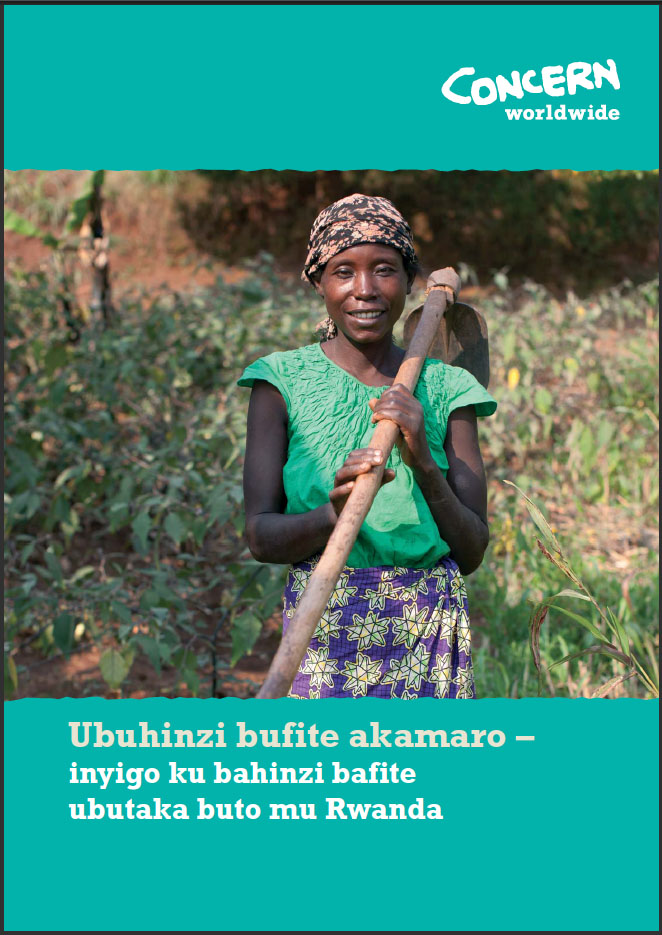
A joint report by the Natural Resources Institute (NRI) and Concern Worldwide, calling for more targeted investment in agriculture for the poorest and most vulnerable farmers, was launched last year at the Houses of Parliament. In July this year, a version of the report was launched in Rwanda, translated into Kinyarwanda, the language spoken by over 12 million people in the country.
The 'Farming for Impact' report is based on a case study of smallholder farmers in Rwanda conducted by Lora Forsythe from NRI and Robin Willoughby from Concern Worldwide. The study examined the agricultural component of Concern Worldwide Rwanda Livelihood Security Programme which was implemented in three of the poorest districts of Rwanda from 2007 to 2011. It explored the outcomes and impacts of the agricultural production interventions and identified promising practices that support resource-poor and vulnerable smallholder farmers in increasing their agricultural productivity. It also provided recommendations for the Government of Rwanda and donors on scaling up these practices.
The Kinyarwanda language version of the report was launched on July 25th 2012 by Mr. Ernest Ruzindaza, the Permanent Secretary of the Ministry of Agriculture and Animal Resources, who highlighted the clear testimonies in the report showing how farmers participating in the Concern agricultural programme have experienced a positive change in their lives. He said; "Our partners [Concern, NRI and IPAR] are supporting the government efforts to achieve its goals and mission, and [that's] the reason why I am congratulating this activity", (Uwimana Angelique MINAGRI weekly flash news 13 July 2013).
Concern's agricultural programme demonstrated that working together with the Government of Rwanda and strong implementing partners to deliver a holistic package of support to resource-poor and vulnerable smallholder farmers can not only increase agricultural productivity, but also contribute to food security and hunger reduction, and can help to insulate countries from rising food prices.
A package of support was delivered by the programme consisting of new and improved agro-techniques, for example; planting techniques and erosion control; assistance in developing household vegetable gardens; access to inputs such as improved seeds and fertiliser; a participatory livestock distribution scheme to increase livestock ownership as a capital asset and source of manure, and savings and loans facilities through pre-cooperative membership.
Analysis of the programme's impact revealed positive outcomes for the most poor and vulnerable people in rural areas, who are largely female-headed households and people living with HIV/AIDS. Agricultural production has been increased and crop failure has reduced. Furthermore, farmers are now growing a greater range of crops, and their food consumption has improved in terms of quality, quantity and diversity.
The translation of the report into Kinyarwanda will help to improve accessibility of the study for a broader audience within Rwanda, contributing to the dissemination and uptake of promising practices in increasing agricultural productivity among smallholder farmers.
Farming for impact report, English version
Farming for impact report, Kinyarwanda version

